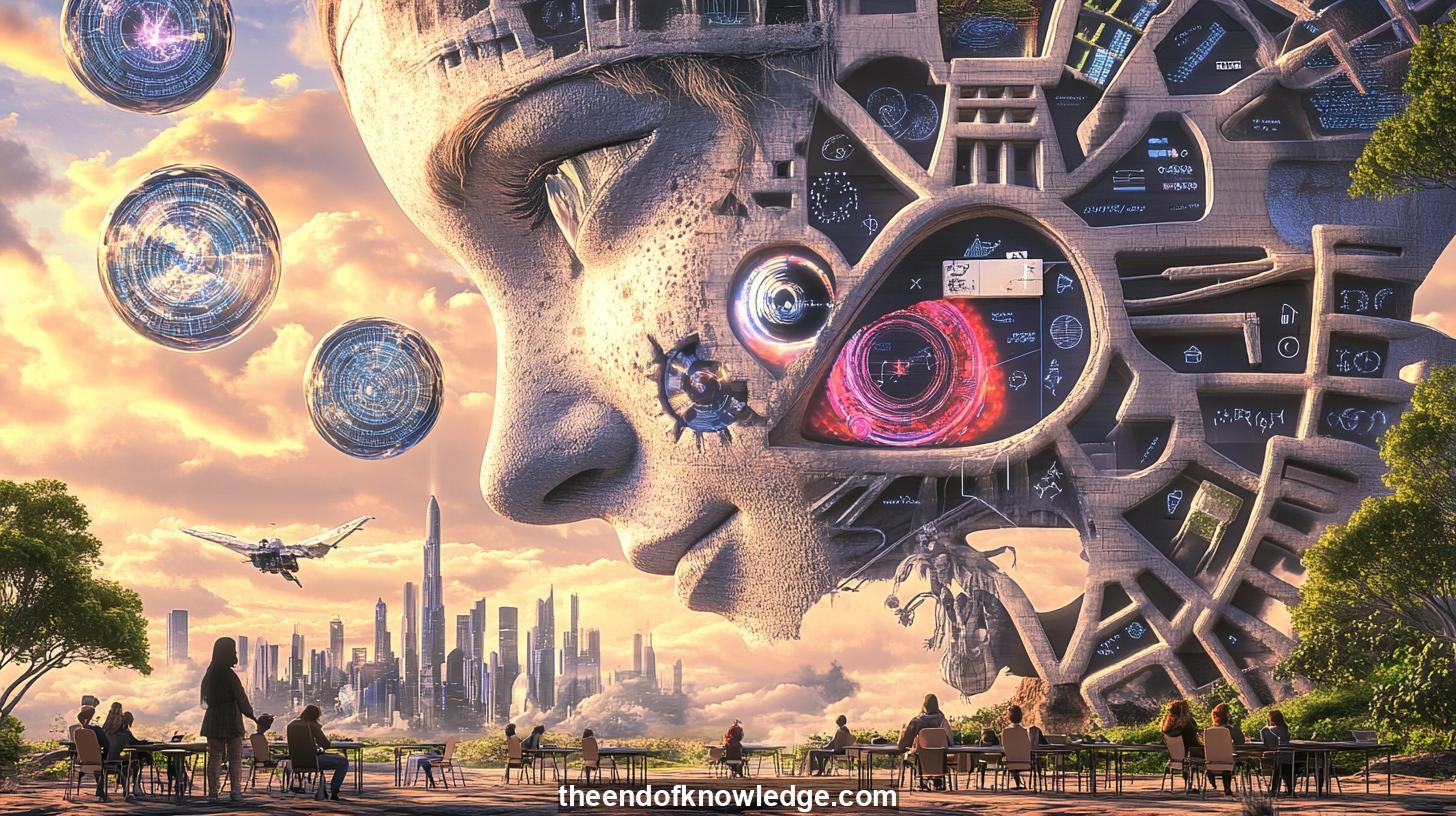 >
>
Concept Graph, Resume & KeyIdeas using DeepSeek R1 :
Resume:
discusses the integration of artificial intelligence (AI) in education, highlighting its potential to transform learning experiences and address current educational challenges. It emphasizes the need for a personalized and competency-based educational model, where AI can help identify individual student needs, track progress, and provide tailored interventions. The presentation also touches on the emotional and mental health challenges faced by students, particularly in the wake of the COVID-19 pandemic, and suggests that AI tools can play a role in monitoring and supporting students' emotional well-being.30 Key Ideas:
1.- AI can revolutionize education by providing personalized learning experiences tailored to individual student needs.
2.- The traditional industrialized model of education often prioritizes standardization over individualization.
3.- AI tools can help identify students' emotional and mental health challenges, enabling early interventions.
4.- Continuous learning and skill development are critical in a rapidly changing technological landscape.
5.- Hyper-personalization in education can facilitate customized learning paths and adapt to student preferences.
6.- AI-driven decision-making in education must address ethical concerns such as bias and transparency.
7.- The integration of AI in education requires significant investment in technology and teacher training.
8.- Collaboration between policymakers, educators, and technologists is essential for effective AI implementation.
9.- AI can help bridge the gap between education and the workforce by aligning skills with economic demands.
10.- Fostering a culture of innovation and continuous improvement is key to leveraging AI in education.
11.- AI should enhance human potential in education rather than replace the essential human elements of teaching.
12.- Personalized learning can help address the high rates of school dropout and youth unemployment in Spain.
13.- AI tools can provide real-time feedback and support to students, improving academic outcomes.
14.- The emotional well-being of students is a critical factor in their academic success and should be integrated into AI-driven solutions.
15.- AI can facilitate the creation of individualized career pathways for students based on their strengths and interests.
16.- The use of AI in education raises important questions about data privacy and student autonomy.
17.- AI can help educators identify and address learning gaps early, preventing long-term academic challenges.
18.- The implementation of AI in education must consider the diverse needs and preferences of all students.
19.- AI can support teachers by automating administrative tasks and enabling more focused instruction.
20.- The ethical implications of AI in education must be carefully considered to ensure equitable outcomes for all students.
21.- AI can enhance the accessibility of education for students with disabilities or special needs.
22.- The integration of AI in education requires a balanced approach that preserves human interaction and empathy.
23.- AI can provide insights into student performance and help educators refine their teaching strategies.
24.- The development of AI tools for education must involve input from educators and students to ensure relevance and effectiveness.
25.- AI can help address the challenges of scalability in education, particularly in large or underserved populations.
26.- The use of AI in education must be accompanied by robust safeguards to prevent misuse and ensure accountability.
27.- AI can support lifelong learning by providing adults with opportunities for skill development and career advancement.
28.- The potential of AI in education is closely tied to the availability of high-quality data and infrastructure.
29.- AI can help create a more inclusive educational environment by addressing individual learning needs and preferences.
30.- The future of education will likely involve a blend of human and AI-driven approaches to maximize learning outcomes.
Interviews by Plácido Doménech Espí & Guests - Knowledge Vault built byDavid Vivancos 2025